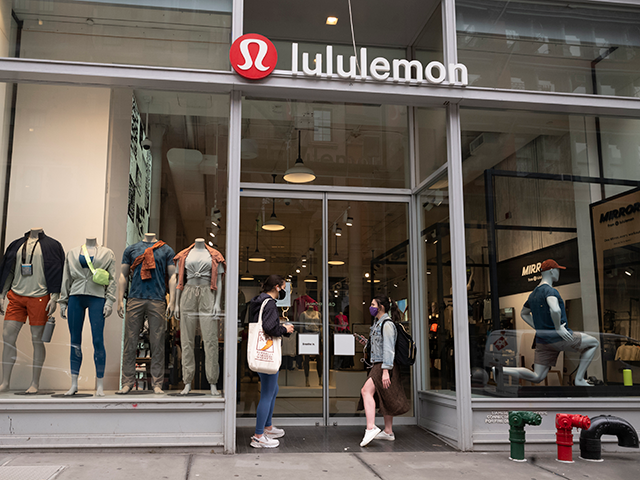Lululemon Warehouse in Washington Set to Close, Laying Off More than 100 Employees
 AP Photo/Mark Lennihan
AP Photo/Mark Lennihan
Lululemon, a Canadian athletic apparel retailer, revealed that it will be closing its warehouse in Sumner, Washington, by the end of the year, laying off more than 100 employees.
The athletic apparel company filed a Worker Adjustment and Retraining Notification (WARN) notice with Washington's Employment Security Department (ESD) on Thursday.
In the notice on the ESD's website, Lululemon says layoffs at the 150,000-square-foot warehouse will begin on June 21, with 128 employees expected to be laid off.
The warehouse in Sumner has a lease that is set to expire in July 2025.
In a statement to CNBC News, a spokesperson said:
As we continue to deliver on our growth strategy to meet the needs of our guests, we regularly evaluate our distribution network to help shape and support the future vision of our business. Following a review of our current infrastructure and the evolution of our fulfillment strategy, which includes a multi-year investment to increase overall capacity and support our growth, we have made the decision to close one of our smaller distribution centers – located in Sumner, WA.”
While some employees will be retained and will relocated to other facilities, including our recently opened distribution center in the greater Los Angeles area, the optimization will result in the reduction of just over 100 positions within the existing Sumner distribution center. We are committed to supporting our impacted employees through this transition.
Between the end of January 2021 and the end of January 2024, Lululemon more than tripled the square feet in distribution centers it leased or owned throughout Canada and the United States, going from 1.12 million square feet to roughly four million square feet.
The company's plan to close its Sumner warehouse comes as sales in North America have reportedly fallen.
In March, Lululemon forecasted that the company's annual revenue and profit would be below expectations, as company shares plummeted 11 percent during extended trading hours, due to less spending from customers.
Source link

